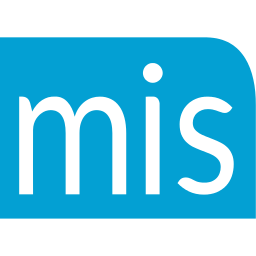 Today it seems to be harder and harder for sales reps to qualify for interest and to identify buying motives.
Today it seems to be harder and harder for sales reps to qualify for interest and to identify buying motives.
One thing making this so difficult is the decision tree: often there are many different levels of decision makers (committees, bosses, regional managers, corporate, etc.), and sales reps often just skip any attempt to qualify for interest.
Instead, they just send their information or schedule their demo and hope for the best.
As you might suspect, the way around this is to be prepared with scripted questions that are assumptive in nature and that lead your prospect to reveal what the buying motives (or motivation in general) are for the various other departments and decision makers.
Use the following scripts (or customize them to fit your product or service), so you can gain an understanding of what the buying motives are and how to tailor your pitch to each group to close the sale:
Qualifying Question #1:
“ _________, why did you (or corporate/manager/boss) choose the solution you’re using now?”
Layer:
“And what are you (they) looking to improve upon now?”
Qualifying Question #2:
“If you were to pick one thing that would be a deal killer if it weren’t there, what would it be?”
Qualifying Question #3:
“What have you heard they’re (corporate, their manager, boss, etc.) specifically looking for in the next (your product or service)?”
Qualifying Question #4:
“Besides price, what else is important (to you, them, etc.)?”
Qualifying Question #5:
“I know that these (your solution) may seem to be all the same, but tell me, what will stand out for you…what’s the one or two things you’re really hoping to see?”
Qualifying Question #6:
“_________, what have you heard in terms of what the priorities are for adding this (your product/service)?
Layer:
“And what is the timeframe you’re hearing for implementation?”
Qualifying Question #7:
“Out of all the companies you’ve (or corporate/manager/boss) has seen so far, what looks the best to you?”
Layer:
“And why is that?”
Qualifying Question #8:
“If you had to pick one thing that this is going to come down to – you know, one thing that you think will be the deciding factor as to who you’ll (corporate/manager/boss) choose, what do you think that will be?”
Layer:
“Besides price, what’s next?”
Qualifying Question #9:
“__________, you haven’t made a change so far, just out of curiosity, what is motivating you to consider doing so now?”
Qualifying Question #10:
“__________, I know I called you out of the blue; I’m glad you’re interested in seeing what we have. Quick question for you, though: What do you think it will take to convince the (corporate/manager/boss)?”
I bet you can think of some of your own, can’t you?
The key to any sale is getting your prospect to tell you how to sell them. If you can do that, you’ll make your job much, much easier.

 Many sales reps get thrown off their pitch when a prospect objects to something early on during the close.
Many sales reps get thrown off their pitch when a prospect objects to something early on during the close. As you know, I often get emails from readers of my
As you know, I often get emails from readers of my  If this were a perfect world, when prospecting and qualifying we would always get to speak with the decision maker and, while questioning them, we would discover that they were looking for our solution, and that they have the budget and authority to make a decision. Furthermore, when asked about their timeline for making a decision, they would reply, “Can you get it here yesterday?”
If this were a perfect world, when prospecting and qualifying we would always get to speak with the decision maker and, while questioning them, we would discover that they were looking for our solution, and that they have the budget and authority to make a decision. Furthermore, when asked about their timeline for making a decision, they would reply, “Can you get it here yesterday?” You hear it all the time: “I/we can’t do anything now because the _________ (fill in the blank with market or economy, or company, or industry, or budget, etc.) is down.”
You hear it all the time: “I/we can’t do anything now because the _________ (fill in the blank with market or economy, or company, or industry, or budget, etc.) is down.” Nowadays, there seems to be a raging debate about when – and even whether or not – to qualify for budget. The new thinking seems be driven by the fear that “until we give the value of what we’re offering (meaning the demo), it’s too soon to talk money. Prospects will just say they can’t afford it.”
Nowadays, there seems to be a raging debate about when – and even whether or not – to qualify for budget. The new thinking seems be driven by the fear that “until we give the value of what we’re offering (meaning the demo), it’s too soon to talk money. Prospects will just say they can’t afford it.” If you sell B2C (or even B2B) and you get the “I have to convince my wife,” stall, how do you handle it?
If you sell B2C (or even B2B) and you get the “I have to convince my wife,” stall, how do you handle it? I receive emails from my readers all the time asking me how to handle various objections and resistance statements. A common request I get is how to handle the initial resistance statement “We are all set.” A variation of this is anything along the lines of:
I receive emails from my readers all the time asking me how to handle various objections and resistance statements. A common request I get is how to handle the initial resistance statement “We are all set.” A variation of this is anything along the lines of: Welcome back to the office, how do you feel? Overwhelmed? Under pressure already?
Welcome back to the office, how do you feel? Overwhelmed? Under pressure already? One of the objections I always get from sales people who don’t want to use scripts is that they sound so, well, like scripts. I tell them that if they sound like they are reading them, sure, but if they internalize them and then deliver them naturally, then they don’t sound like scripts at all.
One of the objections I always get from sales people who don’t want to use scripts is that they sound so, well, like scripts. I tell them that if they sound like they are reading them, sure, but if they internalize them and then deliver them naturally, then they don’t sound like scripts at all.